So you've discovered a love for cold brew. You love the deep, chocolatey flavor, the full-bodied coffee taste that goes down smooth and mellow without any bitter notes. Maybe you've determined the perfectly balanced formula to make coffee the way you like it at home.
Or perhaps you prefer to have a barista make it for you.
Is that perfect cup of coffee made by your local shop better than anything you can make at home? You can read lots of posts about why this may be the case, but the secret might be in the brewing water.
Whether you're drinking nitro or espresso, the quality of the brewing water can change the taste of your java. Read this comprehensive guide and make the best coffee of your life!
But before we talk about the different waters you can use in cold brewing, it is helpful to understand how the brewing process works.
What is Extraction, Anyway?
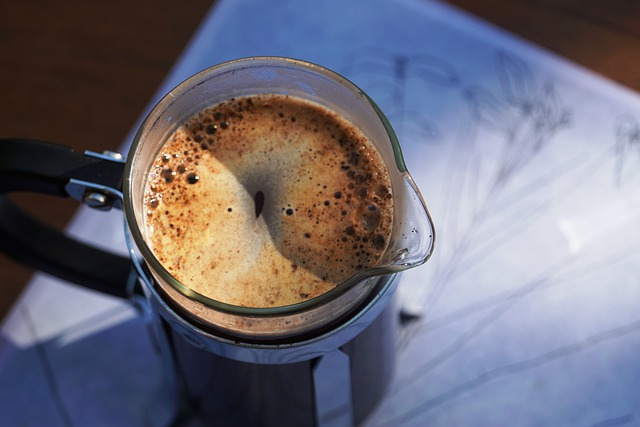
Let's start with the basics. When you make coffee, you are extracting soluble matter from the beans and dissolving them in H2O. This process changes the water's flavor and color, creating everyone's favorite morning cup.
Coffee, then, is a solution of clean water and solubles from the beans. The solubles contain many different compounds and minerals.
How Temperature Affects Coffee Extraction
The temperature of the coffee water directly affects the speed of the extraction of these compounds. The hot water extracts solubles from beans more quickly than cold water, which is why you can brew a pot of hot coffee in a few minutes, but have to wait hours for cold brew.
But the temperature of the H2O affects more than just the time of extraction. Not all solubles can be coaxed from the bean by cold water extraction - and this is a good thing.
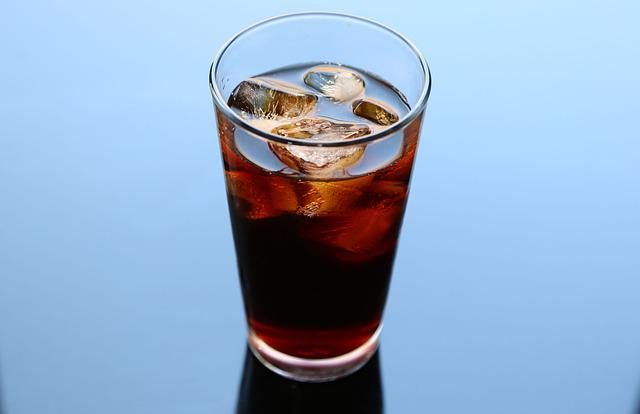
The solubles include a mixture of oils, acids, and fragrant molecules. When the brewing temperature is too high, some of the oils can turn sour, and the acids can start to break down. Both of these reactions leave your coffee tasting bitter and acidic.
You can avoid many of these problems when you choose to cold brew steep your coffee. This method avoids the acid-causing reactions that can take place at higher temperatures, meaning your tall glass of cold brew coffee mixture has a lower acidity to start with.
Additionally, when making cold brew coffee, some of the molecules that would be extracted by hot water are left behind - notably some acids that produce a bitter or bad taste in your cup of coffee.
The absence of bitterness is why cold-brewed coffee often has a slightly sweet taste, even without the addition of sugar, leading to a very smooth cup.
According to many people, drinking cold brew coffee is far superior to hot coffee, for this reason.
Cold brew is a simple concoction, relying on plain H2O that undergoes no temperature change. Is there one sort of water that is better than others for making coffee? Water is just water, right? Let's learn more.
What's in Your Water?
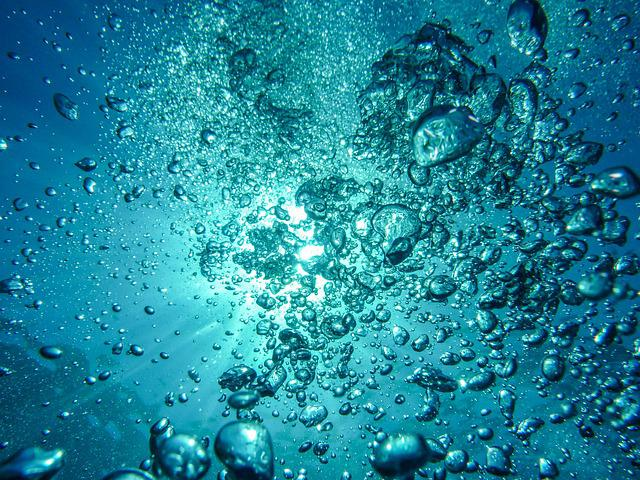
Water isn't just water. Especially these days. You could be drinking tap, bottled, purified, reverse osmosis, well, spring, or even distilled waters (don't drink distilled water).
No matter what type of H2O you drink, chances are that that it contains tiny particles of dissolved solids - minerals and contaminants. A number of factors determine precisely which diluted solids (and how many) are floating in your water.
These factors include the type of water you drink, where it's sourced, and the method by which you dispense it. The Total Dissolved Solids (TDS) of your water consists of calcium, magnesium, potassium, sodium, carbonates, bicarbonates, nitrates, and sulfates.
Mineral water tends to be higher in many of these elements, and people buy it for its taste and health benefits. So a high TDS isn't necessarily harmful - but it can affect the way your coffee tastes.
If you're science and like to know what sort of water you should be looking for, the Specialty Coffee Association of America has created a checklist of standards to help you out. In addition to being clean, neutral-tasting, and free of any funky smells, the SCAA report says good coffee, water should have a pH of 7.0, no chlorine, a calcium hardness of 50-175 ppm and alkalinity of 40 ppm.
It seems simple enough. But short of reaching back to your high school chemistry days, how do you figure out if your water has all that?
If you want to know, you could pick up an at-home water testing kit like this one on Amazon. It tests for all of the categories indicated in the SCAA's standard report and a lot more.
If you're not inclined to test your water, keep reading to learn about cold brew extraction using a variety of water sources.
Should You make Cold Brew Coffee with Tap Water?
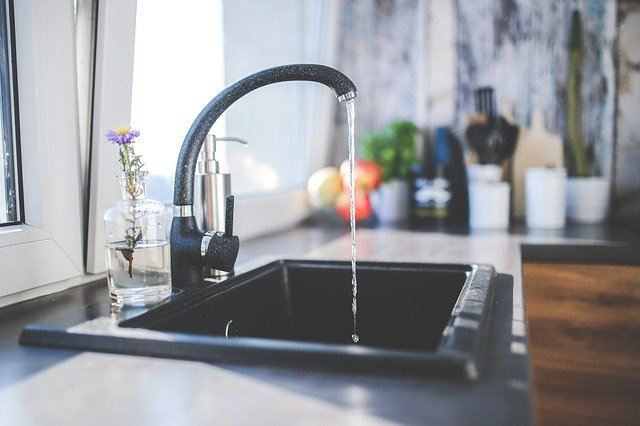
It depends. If your tap water is safe to drink, it's safe to use for brewing coffee. But it might not taste great in your own cold brew coffee recipe. In fact, it might taste outright bad.
If you're using tap to make your coffee, you don't have much control over the pH of your water. This is because municipalities add minerals at different times, which changes the acidity of the water.
Your tap's pH can fluctuate between 6.5 (acidic) and 9.0 (highly alkaline) depending on the exact mineral cocktail in it. At any given time, your tap water can contain a variable combination of calcium, magnesium, bicarbonate, sulfates, sodium, and nitrates.
Is Hard Water Good or Bad for Cold Brew Coffee?
If you have hard water, you might find that cold brew coffee made with water from the tap already tastes pretty good.
There's some science to back that up, too:
Hard water can be tricky if you're making your coffee using an espresso machine because the mineral content of the water can clog up the inside of the coffee maker. If you make cold brew coffee in a jar or other simple maker, you don't have to worry about this and can enjoy the great flavor that hard water imparts to your cup.
But, as we learned at the start of this article, the results of brewing coffee with tap water can be fickle.
If you are content with the coffee you make using your tap water, and you have consistent results, keep it simple, and use that water. But if you find that the taste of your coffee changes a lot from day to day, even when you're using the same brands of beans and the same recipe, it might be time to look into some tap water alternatives.
Is Making Cold Brew Coffee from Bottled Water a Good Idea?
Generally speaking, I would not recommend you to make cold brew coffee from bottled water, with a few exceptions. What are those exceptions?
Water pH
What is water pH? Well, the pH measurement determines how basic or acidic it is on a scale from 0 to 14.
The lower the number, the more acidic it is. The higher, the more of a base it is.
Our body's natural pH is around 7-10, so we are aiming for a pH that measures in this range.
It is really just a measurement of the relative amounts of hydrogen and hydroxyl ions are dissolved in the water.
Personally, I prefer water at a higher pH for my cold brew coffee recipe.
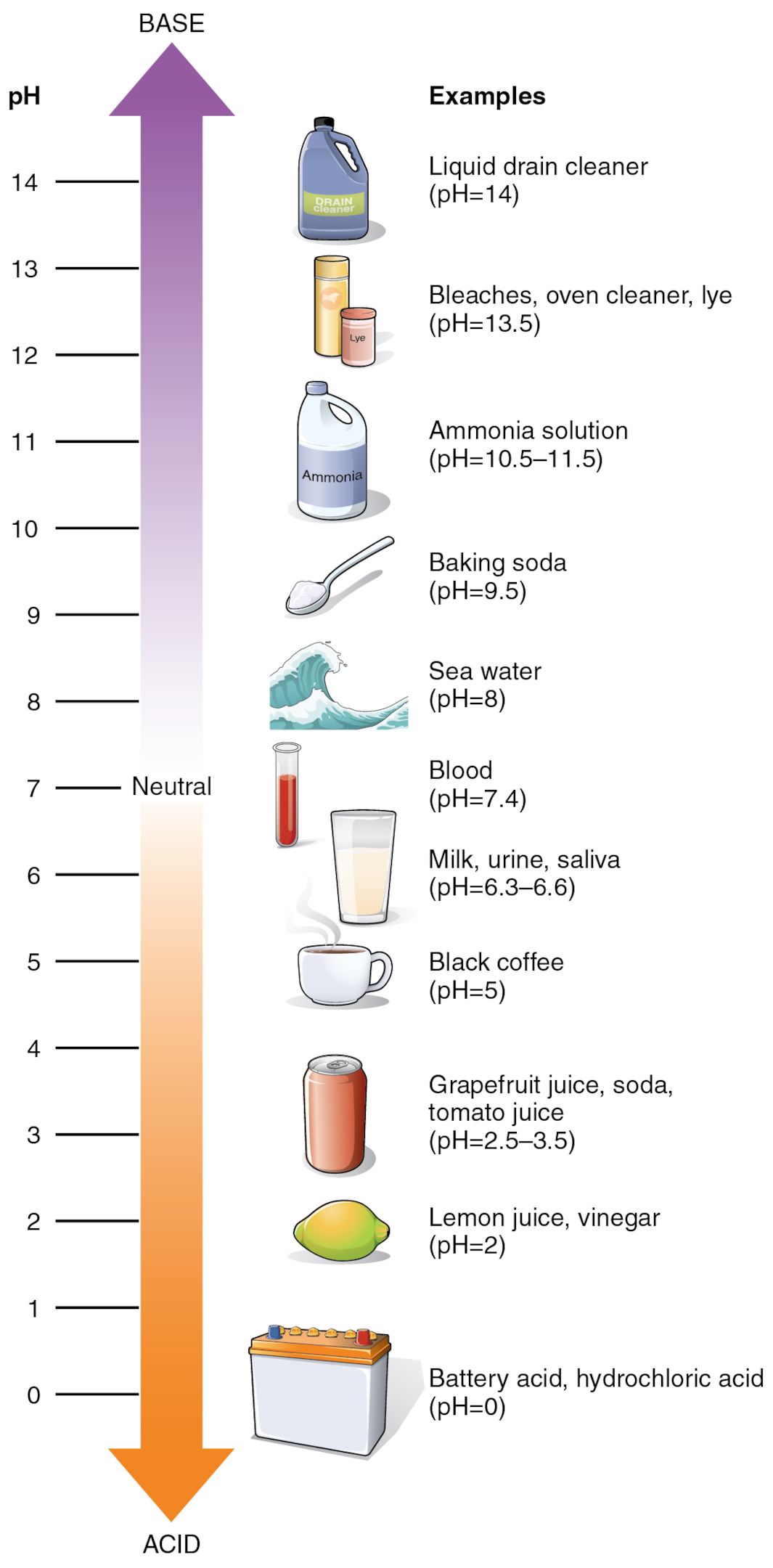
Choosing one of these to start with can significantly reduce the amount of acidity in your final cup, even if adding coffee grounds to the mix increases it a bit after extracting.
Check out this video from Little Lia where she tests all the bottled waters from her local grocery store for pH.
While this doesn't test for everything, pH is one of the biggest factors in determining water quality for cold brew. After all, we are trying to eliminate acidity with our cold brew coffee.
Bottled water is simply H2O that is in a bottle. It can be distilled, purified, filtered, mineral, or spring water. It should undergo the same rigor of testing as you might do for your tap.
To determine whether your bottled water is a good quality for coffee extraction, read the label to figure out what kind of water it is and check the quality with a testing kit.
Should You Brew Your Cold Brew Concentrate with Distilled water?
No, don't do it! Why not?
Distilled water is water that has been turned into vapor (for example, by boiling) and then converted back into the water. When the water evaporates, specific contaminants are left behind. The clean vapor is removed from the pollutants and then turned back into liquid distilled water.
Distilled water is not recommended to drink as the calcium and magnesium are among the minerals removed during the distillation process. The distillation process makes the water softer and more acidic, meaning that it's not the best choice for coffee brewing. All-in-all, stay away from distilled coffee.
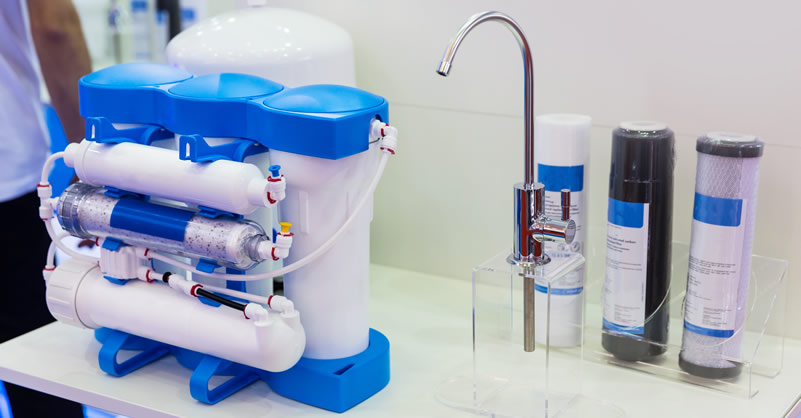
What about Reverse Osmosis Water?
Reverse osmosis water is not the best choice for coffee brewing. The reverse osmosis process removes the calcium content from your water, reducing the hardness, and having a similar effect as distilled water.
Is Filtered Water ok for Cold Brew Coffee?
Technically speaking, unless you're living off the grid and hauling your H2O from the stream out back, any water you drink has undergone a filtering process. All water intended for human consumption, including tap water in U.S. Municipalities, is filtered in some way.
For this category, I'm talking about bottled water that is sold under the designation "filtered." Typically, companies selling such water or selling filtration systems claim to hold their product to a higher standard than the municipal water workers in your town. You can also make your filtered water for coffee using a water filter pitcher or similar device.
That said, filtered water is generally a good choice for making cold-brewed coffee. Water filtration systems work by removing undesirable minerals from drinking water. But they usually do not filter out the calcium and magnesium that makes water hard - because, remember, hard water makes tastier coffee than soft water.
Note: Filtered water is not the same as softened water.
You don't want to use a water softener for coffee brewing as it will increase the acidity in your cup.
We Prefer Using Alkaline Water
Alkaline drinking water is all the rage in the health food space, but is alkaline water the best choice for coffee? We believe so.
Minerals naturally found in alkaline water has been shown to help balance acidity and tannin bitterness found within coffee grounds.
Isn't a high pH and alkalinity the same? Let's look.
What's the Difference Between a High pH and Alkalinity?
If you love cold brew because of its low acidity, you might find that you like it, even more, brewed with alkaline water. While high alkalinity does usually mean high pH, the difference is how we measure the two.
pH is measured on a scale of 0-14.
Alkalinity is the measure of an absolute concentration of all alkaline solubles measured in parts per million or ppm.
Alkaline water has a pH higher than 7.0. The higher the alkalinity of your coffee water, the less acidic your cup of coffee.
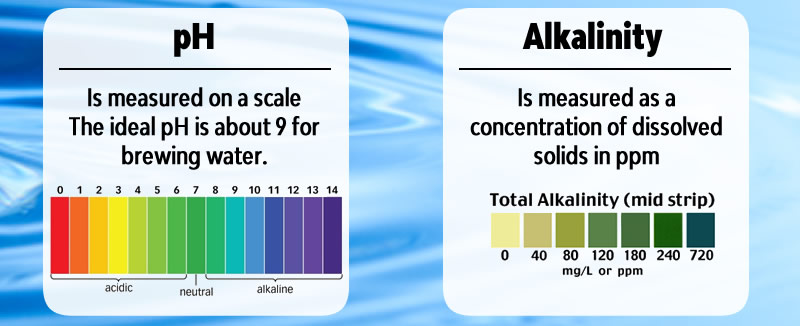
Our main reason for choosing alkaline water for cold brew is the fact that the alkaline substances making up the dissolved solids within the water, act as a buffer to prevent the pH from rising or lowering beyond the initial pH of the water before adding coffee grounds.
The Alkaline water we like (available on Amazon) claims to have a pH of up to 8.8 (which is higher than the pH recommended by the SCAA, if you're keeping track).
You can source one of these products if you're interested in testing out what alkaline water can do for the flavor profile of your coffee, though it could get expensive.
You can also invest in an ionizer like one of these to make alkaline water for coffee using the water from your tap.
You May Be Interested in:
Make Your Own Alkaline Water
If you prefer to save money over purchasing bottled alkaline water, we recommend making your own with water treatment supplements like third wave water or investing in a Berkey water filtration system to improve the water quality of your tap.
Berkey filtered water is typically 0.5 to 1 pH scale higher than the initial water run through it. While the Berkey Water Filtration System can be a bit expensive for the initial purchase, the costs balance out over time based on how often you need filtered water.
I've used my Berkey for close to 10 years while only replacing filters every 6 months or so, and I highly recommend getting one for making cold brew coffee.
FINAL THOUGHTS
Simplify your life, make it easy, and go with what tastes useful to you. Generally speaking, stay away from coffee made with distilled water. You can easily test the science and increase your good mineral content by trying bottled mineral water over your beans.
I will close this guide by inviting you to experiment with the water you use for your morning beverage. Run a taste test to figure out the best water categories for your coffee. Enjoy the process - it's all part of the fun.

Write more, thats all I have to say. Literally, it seems as though you relied on the video to make your point. You obviously know what youre talking about, why throw away your intelligence on just posting videos to your site when you could be giving us something informative to read?
Thanks for your feedback! Testing the quality of water in bulk like in the video would take a long time to produce and cost quite a bit for obtaining the same information.
Thanks for explaining how the quality of water affects the flavor of your coffee over time. My colleague wants to try opening a coffee business that caters to students and working individuals. This information can probably convince him to invest in water treatments that help emphasize the coffee flavor he's looking for.